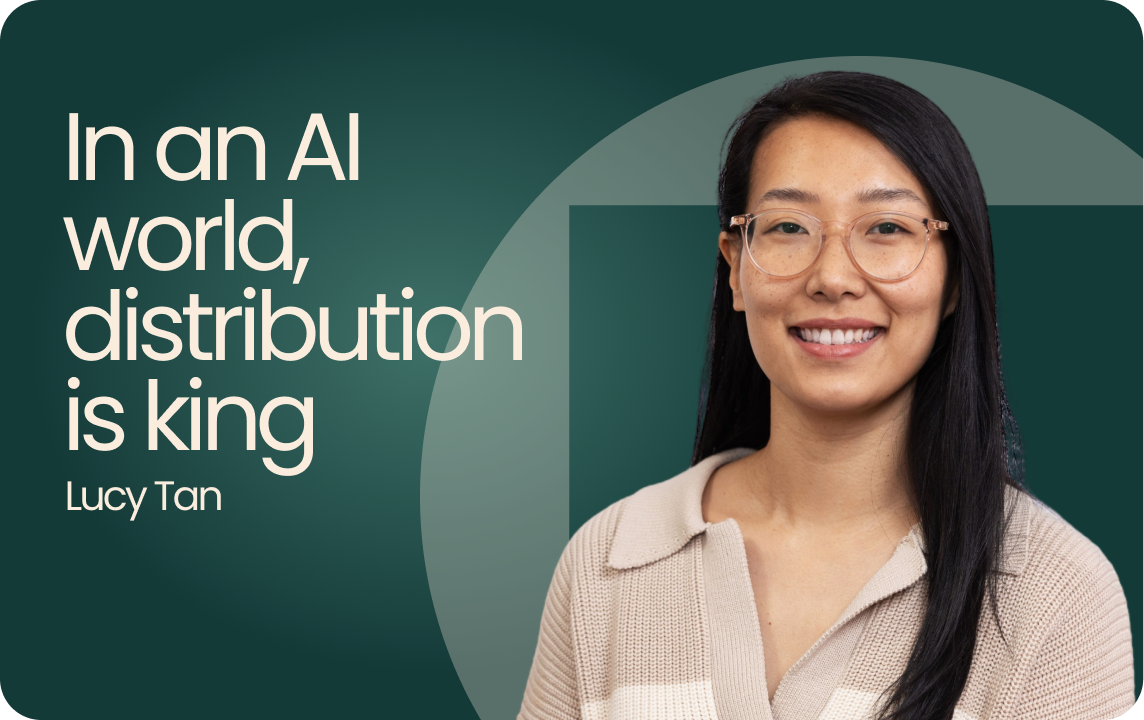The unprecedented pace of change brought about by artificial intelligence in the past few years demands that we constantly challenge our perspectives. In fact, developments over the last 12 months, including reasoning models, DeepSeek, and MCP, have repeatedly overturned conventional wisdom.
At Square Peg, we grapple with this key question daily: Do successful AI founders look different? We believe that, fundamentally, many of the defining characteristics of great founders remain relevant, but they also come with nuances in the AI context.
Founder-market fit. Ultimately, this is still about aligning a founding team’s skills, experiences, network, passion, and insights with the demands of the market they are targeting. For AI founders, this includes a deep, cutting-edge understanding of AI technology, which often translates into an ability to attract high-quality, scarce technical AI talent.
We knew from the start that the founders of Elefant AI, Wenzhe and JJ, were special. Firstly, they have a lifelong passion for tackling the most difficult technical problems. Secondly, they are proven researchers who have published notable papers that were relevant to what they wanted to build. In addition, they have experience in applying ML to build great products in their past roles. Lastly, they have a track record of attracting exceptional research talent.
Speed and scale of innovation. The ability to iterate and ship at speed is the hallmark of a great founder. Still, in the world of AI, the need to act fast and be aware of user behaviour, the competitive market, and technology advancements is paramount.
While we still value an AI founder’s know-how and expertise in building proprietary technology, their ability to instil a culture of innovation, push their teams to ship faster than their competitors, or encourage an AI-native way of working is arguably as important (if not more so).
As before, there are many ways this could manifest. Transformer architecture is a form of technical innovation. The conversational interface of ChatGPT is a product innovation. Providing large-scale data labelling for AI models as a service is a business model innovation.
Steve and Jamie, the founders of Lorikeet, began their journey with a vision of building an operating system for COOs. After gathering early feedback, they quickly pivoted to focus on helping companies manage customer support tickets. In a highly competitive space, they have carved out a strong position by addressing complex needs in regulated industries, such as fintech and healthtech, and continually evolving their product suite to stay ahead. Their real advantage lies in how deeply they integrate AI across every part of the business, not just within the "AI features" themselves, but also in coding, marketing, sales, and beyond.
Grounded ambition. Good founders have a bold (sometimes outrageous) vision that few others can envisage. Great founders can clearly articulate the steps it would take to get there. The best founders do both of the above, and remain open-minded enough to acknowledge the risks and chart a different path if required.
AI Hay’s founding team has a bold ambition: to build Vietnam's top consumer app, competing with global giants like TikTok and Facebook. Their handling of team structure, ESOPs, partnerships, and fundraising clearly demonstrated this drive. Much has changed since our initial investment—technology and geopolitics—but the team’s focus on their goal hasn't wavered. Their persistence paid off: AIHay is now Vietnam's second most popular AI Assistant app, trailing only ChatGPT. It's this "grounded ambition" that enabled them to overcome challenges and establish a top consumer AI company in the region.
The reality is that we are operating in an AI world where there are many more unknown ‘unknowns’. This requires founders to have a healthy blend of aspiration, assertiveness and humility. For example, effective founders who build applications on top of foundation models are acutely aware of both the opportunities and risks posed by each new announcement from OpenAI. They are thoughtful about the viability of their product both within and outside of the constraints of current AI technology. They can posit scenarios where their business loses relevance, but can tell you why that is unlikely to happen and what their ‘plan B’ would be.
Customer centricity. Building a good business often starts with a clear problem statement. You’re more likely to have a clear problem statement if you have a thorough understanding of customer needs. When it comes to building in AI, this is even more pertinent.
Generative AI has unlocked the possibility of building products and services that were previously impossible or simply unviable. It is easy for founders to become enamoured with their own innovative technology. However, the product must address a genuine pain point beyond simply being novel and 'cool'. The prevalence of experimental budgets and top-down pressure to test AI solutions in enterprises can also create a false sense of traction, rather than genuine customer love.
When we first met Paul and Ant of Supabase, they demonstrated an immensely deep appreciation for the challenges faced by developers when managing backend infrastructure. From the outset, they were hyper-focused on building a platform for developers, one that is open-source, full-stack, and vendor-agnostic. This clearly struck a chord with their users, and they currently boast one of the world’s fastest-growing open-source communities, with 1.7 million registered developers.
So, does the rise of AI mean successful founders are a new breed entirely? Our view is evolving, but leans towards: AI changes the game, not the player. The core ‘player’ attributes—bold vision, relentless drive, and customer focus—are as critical as ever. Yet, the rules, the speed, and the tools of the ‘game’ have been irrevocably reshaped by AI, and demand new mastery. This includes a necessary technical fluency, the capacity for innovation at unprecedented scale and speed, and a grounded approach to navigating significant unknowns.
At Square Peg, we seek the outlier players who possess this unique blend of founder attributes and the ability to adapt in the new era of AI. This search is central to our work, and we are eager to find, meet, and learn from those building the future. You can reach us at piruze@squarepeg.vc or junwei@squarepeg.vc

.svg)


